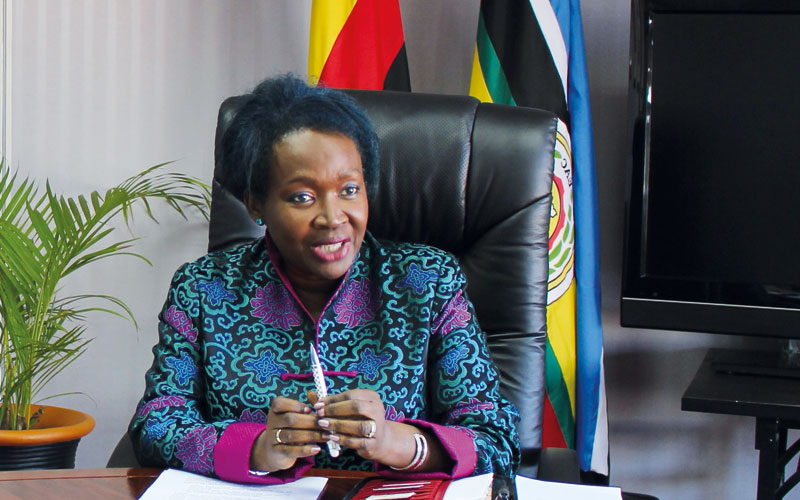Extended economic growth over the past decade has enabled Uganda’s prosperity to be enjoyed by larger swathes of its growing population.

Ensuring this continues is the centrepiece of the East African nation’s Vision 2040, which sets out how the country will provide for its citizens over the coming years. Sound financial planning is a key facet of this, and following the discovery of oil reserves in the western region of the country, the hope is now that the income derived can provide for future generations.
“We all know that all petroleum resources are finite,” explains Maria Kiwanuka, Minister of Finance, Planning and Economic Development. “We have to make a plan that is sustainable and our goal is for the black gold underground to come up to support the perennial green gold.”
The plan is to invest heavily in agriculture so that once the oil has gone the country continues to enjoy prosperity. That means improving the country’s infrastructure and developing economic security to ensure the country can remain one of the top performers in the region.
Encouraging foreign investors to spend and prosper with Uganda has become a vital part of Ms Kiwanuka’s outlook, while improving the workforce’s productivity is also key and is being achieved through the roll out of programmes for training, skills development and healthcare.
Uganda’s strategy relies on it making the most of its location in Africa, with land borders adjoined to Kenya, Tanzania, and Rwanda. There are also connections with South Sudan and Eastern Congo, while Burundi is also nearby, meaning the country is ideally placed to become a distribution hub for the region.
Such a development could provide great economic benefits if the country can develop its industries, not least agriculture. “There is an increasing focus on answering the regional food requirements,” says Ms Kiwanuka. “At this moment, all our neighbouring countries are our net food importers. I think we should seize this moment, and increase our productivity to answer the food requirements of western Kenya, northern Tanzania, Rwanda, Burundi, South Sudan, and eastern Congo.”
Securing wider trading ties will enable Uganda to continue growing and spread prosperity amongst its populace: a key goal for the country’s ruling president. Inclusivity and sustainability have become watchwords for Ms Kiwanuka as she seeks to develop not just agriculture but also processing and distribution sectors. Tourism is also well positioned to provide further sustainable employment.
The minister is keen on forging closer ties with neighbouring countries and the nation has already been involved with developing a common currency between Rwanda, Burundi, Kenya and Tanzania. Ms Kiwanuka has also forged ahead with banking reforms, with mobile systems now providing services to large swathes of the population, and plans are in place to expand micro insurance, business credit applications and other financial services in the future.
The private sector is key to these aims and foreign investors have already partaken in public-private partnership (PPP) schemes across Ugandan infrastructure projects. With mining and gas and oil extraction set to be a burgeoning sector, the hope is that it will help cement Uganda’s future prosperity for decades to come.
0 COMMENTS